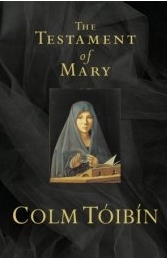 Title: Breasts and Eggs (Goodreads)
Title: Breasts and Eggs (Goodreads)
Author: Mieko Kawakami
Translator: Sam Bett, David Boyd
Published: Picador, 2020
Pages: 430
Genres: Contemporary
My Copy: Paperback
Buy: Amazon, Book Depository, Kindle, Wordery (or visit your local Indie bookstore)
After reading Kim Jiyoung, Born 1982 by Cho Nam-Joo (translated by Jamie Chang), I moved on to Breasts and Eggs by Mieko Kawakami (which is translated from the Japanese by Sam Bett & David Boyd). These two books seem to pair nicely with each other; one explores the everyday sexism that woman face, while the other is a look at fertility and body image issues. However, I am not the right person to talk about Breasts and Eggs, and I only choose to write down my thoughts as a way for my own personal recollection. This is a sensitive topic and having a male reviewer explore the topic feels wrong, like a male author writing about female sexuality.
Mieko Kawakami originally wrote Breast and Eggs as a novella, which was later rewritten into the novel that has recently been released. This is the story of three women, the unnamed narrator in her mid-thirties, her older sister Makiko, and Makiko’s twelve-year-old daughter, Midoriko. Three women at different stages in their lives, exploring the issues of motherhood, fertility and their bodies. These three narratives allow the author to explore a range of body issues, Makiko is unhappy with her breasts and is having breast enhancement surgery. Not just enlargements but she wants to change her nipples, make them pink. Midoriko is going through puberty and is unable to express her insecurities about her changing body. While the unnamed narrator wants to become a mother, but Japanese reproductive laws only apply to married heterosexual women that are unable to conceive.
As you can see, this novel explores so many important issues and as a man, I do not feel like it is my place to weigh in on these topics. Women have enough problems with men trying to dictate their lives. However, I did find it fascinating to explore the struggles these women are facing and the way they try to navigate through their lives. This is a book about the repression woman face in Japan, but like Kim Jiyoung, Born 1982, I think this is a much more universal problem.
Breast and Eggs has so much to offer and so many issues to explore. I really liked that the narrator explored the idea of asexuality but was still interested in motherhood. She was aromantic but still wanted to be a parent and was looking at options on how to achieve that. I do not think I have ever read a novel about an ace’s journey into becoming a mum and it really highlights just how important it is to explore the different struggles people face from around the world. I read translated literature for this reason, I want to see the different social experiences, as well as the similarities. This is why we need representation from people all over the world, and the LGBTQI+ community.
I really hope that I was able to verbalise my thoughts on Breast and Eggs without overstepping my mark. While this is a book that women should be talking about and reviewing, I still think it is important for men to read as well. I simply want to write my thoughts on this book, so I have a record of my feelings; I post reviews on my blog to document my reading journal. I hope I am not offending anyone by talking about Breast and Eggs.

 Title: The Savage Detectives (
Title: The Savage Detectives ( Title: A Little Life (
Title: A Little Life ( Title: All That Is (
Title: All That Is ( Title: How Proust Can Change Your Life (
Title: How Proust Can Change Your Life ( Title: Harvest (
Title: Harvest ( Title: The Testament of Mary (
Title: The Testament of Mary ( Title: Kiss Me First (
Title: Kiss Me First ( Title: The Unknowns (
Title: The Unknowns ( Title: Breath (
Title: Breath (